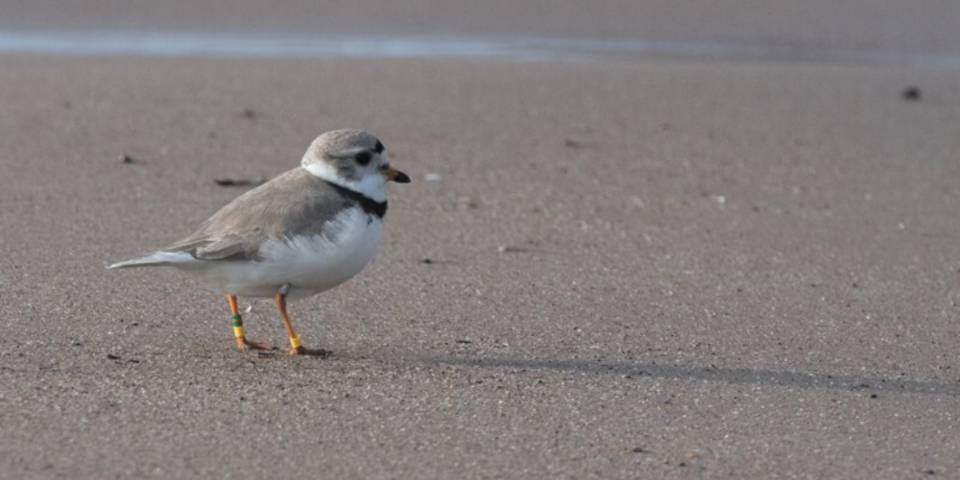An endangered bird species calling Tiny Township beaches their home have returned for another year to lay their eggs.
Flash and Pepa are two piping plovers (Charadrius melodus circumcinctus) – a small shorebird which have an orange stubby bill with black tip, bright orange legs, and are mostly the colour of dry sand except for a black band on their breast and above their forehead for adults.
They were designated as endangered in 2001, and have been federally protected under the Species at Risk Act since 2003, and provincially since 2008 under the Endangered Species Act; the migratory birds are protected anywhere they nest in Canada.
As territorial birds, Flash had been seen as the returning male to the Woodland Beach area since 2019.
Public works director Tim Leitch gave an update on the returning pair at a recent meeting of council, noting that municipal staff were working alongside Birds Canada to monitor and control conditions for the nesting birds.
“The area has been contained (and cordoned) off,” said Leitch. “We’ll be giving some regular updates with the status of how they’re doing, but we just ask the public to respect the area. Make sure you stay out of that (area), keep dogs on leashes, things like that.”
Mayor David Evans was also pleased with the birds’ arrival, sharing an anecdote of his birdwatching daughter’s observations for the council attendees.
“(My daughter) informed me that there’s only five birthing couples of plovers in Canada right now, so this is a very big deal for them,” said Evans.
“I was amazed a couple of months ago that she had sent us pictures of Flash in the Gulf of Mexico. I think Flash has got a pretty good life,” Evans joked to the laughter of the chamber. “Gulf of Mexico and Woodland Beach. Now he’s starting another family again, he’s doing okay.”
Piping plovers lay eggs every other day until they have a clutch of four eggs, which they incubate over the span of a month. However, hatchlings are vulnerable due to their size similar to a golf ball and their inability to fly for their first month.
Tips for helping to keep the piping plover safe include: walking on wet sand at the water’s edge when near posted breeding areas; keeping pets leashed; removing waste from beaches which would attract predators; leaving beach debris such as driftwood, shells and seaweed undisturbed; non-operation of vehicles on beaches or dunes; and more.
Archives of council meetings are available to view on Tiny township’s YouTube channel.



